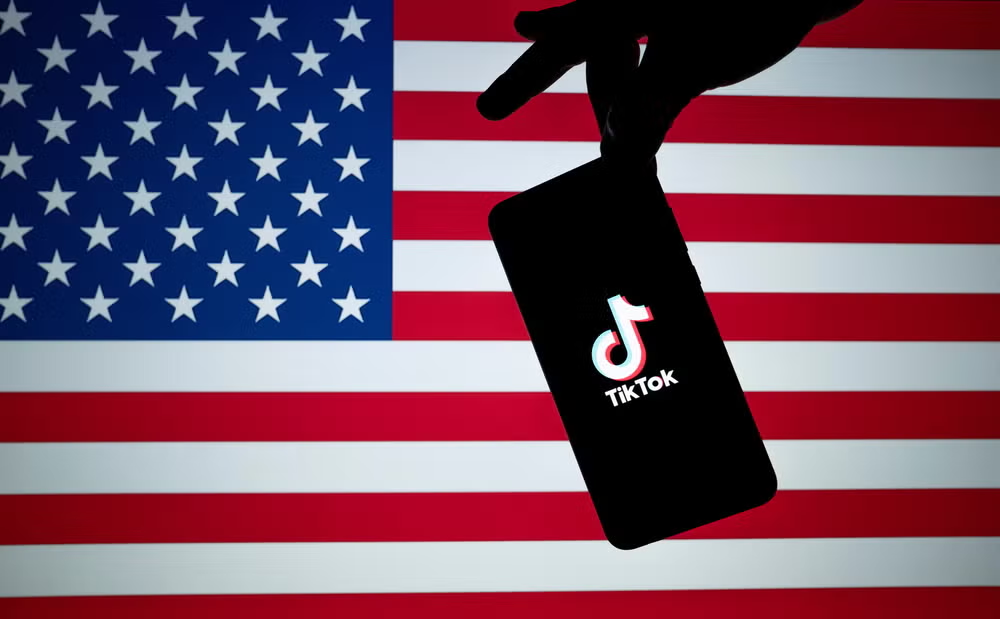In September of 2025, US President Donald Trump signed the Saving TikTok While Protecting National Security Executive Order, which attempts to skirt the Protecting Americans from Foreign Adversary Controlled Applications Act which was signed into law by Congress in April 2024.
Under this law, ByteDance, TikTok’s China-based parent, must divest its US operations or face a ban.
The concern, as stated by many national security officials, is that ByteDance, via its Chinese connections, could share US user data or manipulate TikTok’s algorithm to push content in favour of the Chinese Communist Party. Yet, despite the law, deadlines have been repeatedly extended, and the administration claims it has found a way to satisfy the law via a “qualified divestiture” rather than a total severance of all control or influence.
Under this new executive order, TikTok’s US operations will enter a US-based joint venture whereby ByteDance will retain less than 20% ownership. With the US arm of TikTok being valued at around $14bn under the new deal, an investor group led by Oracle’s Larry Ellison, Dell computers’ Michael Dell, and infamous multi-media owner Rupert Murdoch (and his heir, Lachlan Murdoch) is poised to take over US operations.
The proposed takeover of TikTok’s US operations, under the guise of protecting American citizens, threatens to trade one risk for another: foreign influence replaced by domestic concentrated power.
Owning the TikTok algorithm
From a national security perspective, these safeguards may not be enough, but the divestment of Chinese ownership of TikTok’s algorithm makes sense.

US Tariffs are shifting - will you react or anticipate?
Don’t let policy changes catch you off guard. Stay proactive with real-time data and expert analysis.
By GlobalDataChina is the US’s strategic nemesis, and, by controlling an algorithm that regularly suggests content to 170 million US citizens, it can control how the US thinks.
Despite the forced divestment, however, the algorithm may remain subject to licensing (given that it won’t be entirely independent and will be licensed from ByteDance) or oversight that still keeps it linked in some way to ByteDance, leaving it open to the possibility of influence via coded backdoors.
Oversight, monitoring, and “trusted partners” are vague. Who selects them? How independent are they? Are there enforceable penalties if they fail to comply? History suggests that regulatory oversight often becomes lip service when powerful interests are involved.
Democracy, propaganda, and the feed
While the specifics of the deal are yet to be fully ironed out, the current list of potential buyers reads like Trump’s Rolodex of allies, or so-called “American patriots” (and long-time Republican donors). Oracle is set to have responsibility for data storage and security. The proposed board will be majority US-controlled, but much of the decision‐making about what content gets seen, how algorithms work, and how data flows may still depend on opaque arrangements. The Trump administration claims the deal will remove TikTok from foreign adversarial control, stripping ByteDance of its operational influence over algorithms, data sharing, and move US user data to servers under US control.
Whoever controls the TikTok algorithm controls what millions of Americans believe, and what they don’t. A platform with 170 million US users is now being retooled. Who decides what content is promoted or suppressed matters enormously for free speech and public discourse. When media magnates with deep partisan and ideological ties (like mostly-Trump-aligned Fox Crop) get access to this level of influence, the risk is that domestic control becomes just as powerful and opaque as it would be under ByteDance. Even if oversight structures are promised (vis-à-vis American board, review of algorithm, etc.), those promises alone may not guard against private bias and interest, given Oracle’s position as a data company.
What’s being sold?
Security is being sold. Not to the American public, but to the claim that elite insiders can manage what the law demands. Influence is being sold. The attention economy is being privatised, entrusted to a narrow caste of wealthy individuals and political actors.
Precedent is being sold. This framework of “national security” convenience sets a model for future deals. Trump (or any future US administration) can deem a company that’s owned by foreign ownership to be a foreign adversary of sorts, hand it off to political friends, and call it a protection of democracy, all while bolstering their (or their party’s) political influence and prospects.
Trumping TikTok
There are serious concerns to be had about Chinese influence over TikTok. However, what we need now isn’t further concentration of US tech and media power. Bringing a social media app under the ownership of media moguls who already control a large chunk of broadcast, cable, and print media gives them even more control over what stories are prominent. It threatens to hollow out independent speech by concentrating who supplies narratives.
Will Rupert and Lachlan take a Wall Street Journal-esque route of sitting back and allowing the platform to run by itself, or will they try to influence the app to bring it in line with their more conservative offerings? Will TikTok follow in the steps of fellow Republican-aligned Elon Musk’s takeover of Twitter (now X) and move significantly towards the right?
Controlling both data storage and algorithm supervision gives Oracle enormous leverage. Data is the heart of influence in platform politics, and algorithm control shapes what people see. This is not just a commercial operation; it’s a power over the flow of information.
Ellison is well known to be a supporter of Republican causes, again raising the risk that TikTok’s recommendation algorithm and moderation could be influenced to favor pro-Trump or pro-Republican content, either by design or by omission.






